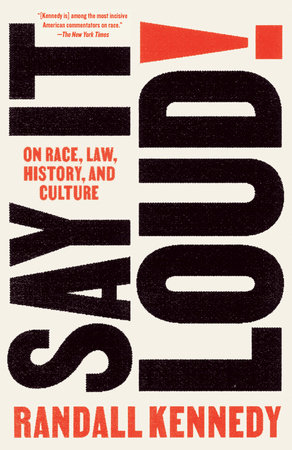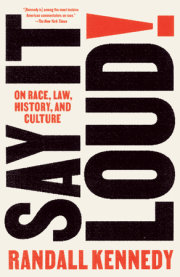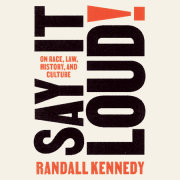1. Shall We Overcome? Optimism and Pessimism in African American Racial Thought Take courage . . . ye Afric-Americans! Don’t give up the conflict, for the glorious prize can be won. —Peter Osborne (1832)
In the quest for equality, black folks have tried everything. We’ve begged, revolted, entertained, intermarried, and are still treated like shit. Nothing works, so why suffer the slow deaths of toxic addiction and the American work ethic when the immediate gratification of suicide awaits?—Paul Beatty (1996)
Within the diverse, always-changing spectrum of black American racial thought can be discerned two broad camps: the optimists and the pessimists—those who believe that blacks are (or can become) members of the American family and those who believe that blacks will always be outsiders; those who predict that we shall overcome and those who conclude that we shall not.
I
The fight at the founding of what became the United States of America made blacks think about and act upon which outcome would offer a better future: a victory for the colonists with their libertarian rhetoric and entanglement with slavery, or a victory for the Crown, which was, in principle, indifferent to slavery but willing to free the colonists’ bondsmen as a war measure. story of blacks making common cause with the rebels, hoping to elicit a recognition of African American contributions to the nation’s founding in order to gain better treatment. Consider William Nell’s
Colored Patriots of the American Revolution published in 1855. Nell sought to use the memory of Crispus Attucks and other blacks who fought with the rebels to obtain from whites some measure of respect for colored folks whose forebears had helped the colonies secure independence. It should therefore come as no surprise that Nell ignored the blacks who fled
to and fought
for the British. Pessimistic about their prospects in an America ruled by rebellious slaveholders, many slaves deserted their masters, including some of the most eminent of the Founding Fathers. Slaves fled George Washington and Thomas Jefferson, as well as James Madison and Patrick Henry.
The British offered freedom to slaves who took up arms for King George. About fifteen thousand did so, while about twenty thousand fought alongside the colonists. One who joined the British was a New Jerseyan named Titus. When he learned in 1775 of the British proclamation promising freedom in exchange for assistance in quashing the rebellion, Titus headed south to seek liberation. Three years later he returned to New Jersey, bearing the name Colonel Tye and leading a band of fighters who struck fear into the ranks of rebel colonists. We know little about Colonel Tye’s motivations. It is certainly plausible, however, that a driving factor was outrage at people like Thomas Jefferson who championed “freedom” while simultaneously endorsing legislation to provide slaves as compensation to colonial rebel soldiers.
After the Revolution, several observers concluded that Euro-Americans and Afro-Americans would never be able to coexist as equals. Thomas Jefferson held this view, declaring, “The two races, equally free, cannot live in the same government.” Asked why he disfavored efforts to incorporate blacks into the polity, Jefferson answered,
Deep rooted prejudices entertained by the whites; ten thousand recollections by the blacks, of the injuries they have sustained; new provocations; the real distinctions which nature has made; and many other circumstances will divide us into parties, and produce convulsions, which will probably never end but in the extermination of the one or the other race. Alexis de Tocqueville’s prediction was similarly bleak. In
Democracy in America he forecast that the racial oppression of blacks would remain a salient feature of American society even after the abolition of slavery. “I do not believe,” he wrote, “that the white and black races will ever live in any country upon an equal footing. But I believe the difficulty to be still greater in the United States than elsewhere.” Why this distinction? In America, he observed, “the abstract and transient fact of slavery is fatally united with the physical and permanent fact of color. The tradition of slavery dishonors the race, and the peculiarity of the race perpetuates the tradition of slavery.” Tocqueville believed that slavery had forever poisoned relations between black and white. “You set the Negro free,” he writes, “but you cannot make him otherwise than an alien to the European.” Furthermore, he maintained that the baleful effects of slavery would persist not only in the South (where slavery was most deeply entrenched), and not only in the Northeast (where abolition gradually prevailed in the three decades prior to Tocqueville’s visit), but also in those areas of the country where slavery had never taken root:
Slavery recedes, but the prejudice to which it has given birth is immovable. . . . [I]n those parts of the Union in which the Negroes are no longer slaves they have in no wise drawn nearer to the whites. On the contrary, the prejudice of race appears to be stronger in the states that have abolished slavery than in those where it still exists; and nowhere is it so intolerant as in those states where servitude has never been known. An important institutional manifestation of such pessimism was the American Colonization Society (ACS), which sought to send free blacks to Africa. The ACS included among its members scores of prominent figures including James Monroe, Bushrod Washington, Andrew Jackson, Francis Scott Key, Daniel Webster, and Henry Clay. Most members of the ACS were supporters of slavery and viewed free blacks as negative role models. A few, however, were genuinely sympathetic to free blacks. They championed colonization in part because they hoped it would put blacks beyond the deadening grip of antagonistic whites. In Africa they could rule themselves.
Swayed by this prospect of self-rule, some free blacks were initially drawn to colonization. Its attractiveness waned, however, when free blacks became further acquainted with Negrophobes such as Henry Clay who maintained approvingly that colonization would “rid our country of a useless and pernicious, if not dangerous, portion of its population.” After learning more about the ACS, free blacks turned against it en masse, asserting their rootedness in and fidelity to the United States.
A few blacks, however, continued to support colonization. Among them was the remarkable Paul Cuffe. A sea captain, abolitionist, and businessman, Cuffe wanted blacks to return to Africa because he thought that they would never “rise to be a people” until they had their own nation. Another black colonizationist was Newport Gardner, a former slave who had luckily been able to purchase freedom for himself, his wife, and his children. Gardner lived a charmed life for an African American in the early days of the nation, supporting himself from money he earned through music lessons and royalties from musical compositions. He was an officer in the Free African Union Society and a sexton of the First Congregational Church in Newport, Rhode Island. Still, in 1826, at the age of eighty, Gardner felt impelled to immigrate to Liberia, accompanied by two dozen black Rhode Islanders including one of his sons. “I go,” he remarked as he boarded a ship, “to set an example to the youth of my race. . . . They can never be elevated here. I have tried for sixty years—it is in vain.”
Between 1820 and 1840 as many as ten thousand blacks immigrated to Liberia, Canada, and Haiti. Some who had previously eschewed emigration came to embrace it under the pressure of unremitting Negrophobia. The Reverend Henry Highland Garnet had opposed colonization, ignoring “the harp-like strains that whisper freedom among the groves of Africa . . . while three millions of my country are wailing in the dark prison-house of oppression.” By the 1850s, however, he had reconsidered. “My mind of late has greatly changed in regard to the American Colonization scheme. I would rather see a man free in Liberia than a slave in the United States.”
Despair was the sentiment from which emigration sprang. It is on vivid display in Martin R. Delany’s
Condition, Elevation, Emigration, and Destiny of the Colored People of the United States. “Our common country,” Delany wrote, “is the United States. Here we were born, here raised . . . here are the scenes of childhood . . . the sacred groves of our departed fathers and mothers. . . . [W]e love our country, dearly love her. [But she doesn’t] love us—she despises us, and bids us begone.”
No act of the U.S. government crystallized more vividly its rejection of blackness than the U.S. Supreme Court’s 1857 ruling in
Dred Scott v. Sandford. The Court held, among other things, that blacks were ineligible for federal citizenship. It concluded that blacks were not a part—and could
never be a part—of the national political family, that blacks could never actually become African Americans, that all that they could ever be were Africans in America.
Chief Justice Roger Taney’s portrayal of a racist Constitution ratified the view of Negrophobes and was lauded by them. There were some racial egalitarians, however, who also agreed with Taney’s interpretation descriptively, though they found it to be morally appalling. One was William Lloyd Garrison, the indefatigable abolitionist editor of
The Liberator. It was precisely because Garrison agreed with Taney’s portrayal of the Founders that he scorned the Constitution, deemed it illegitimate, and argued that it ought to be disobeyed or destroyed. The Constitution was, he maintained, a “covenant with death,” “an agreement with Hell,” a “heaven-daring arrangement” that “will be held in everlasting infamy by the friends of justice and humanity throughout the world.”
Frederick Douglass, Garrison’s extraordinary protégé, initially echoed his mentor’s position. He, too, damned the American government and its Constitution, declaring,
I have no patriotism. I have no country. . . . The only thing that links me to this land is my family, and the painful consciousness that here there are three millions of my fellow-creatures, groaning beneath the iron rod of the worst despotism ever devised. . . . I cannot have any love for this country or for its Constitution. I desire to see its overthrow as speedily as possible, and its Constitution shivered into a thousand fragments. Abraham Lincoln’s assessment of the Constitution was very different: he revered it. But like Cuffe, Tocqueville, Jefferson, and the early Frederick Douglass, Lincoln was a racial pessimist. During his famous debates with Senator Stephen A. Douglas, Lincoln repeatedly eschewed the possibility or advisability of racial equality in America. “I am not in favor of negro citizenship,” Lincoln declared on September 18, 1858. In that same debate he averred,
I am not, nor ever have been in favor of bringing about in any way the social and political equality of the white and black races. . . . I am not nor ever have been in favor of making voters or jurors of negroes, nor of qualifying them to hold office, nor to intermarry with white people; and I will say in addition to this that there is a physical difference between the white and black races which I believe will forever forbid the two races living together on terms of social and political equality. ###
Copyright © 2021 by Randall Kennedy. All rights reserved. No part of this excerpt may be reproduced or reprinted without permission in writing from the publisher.










